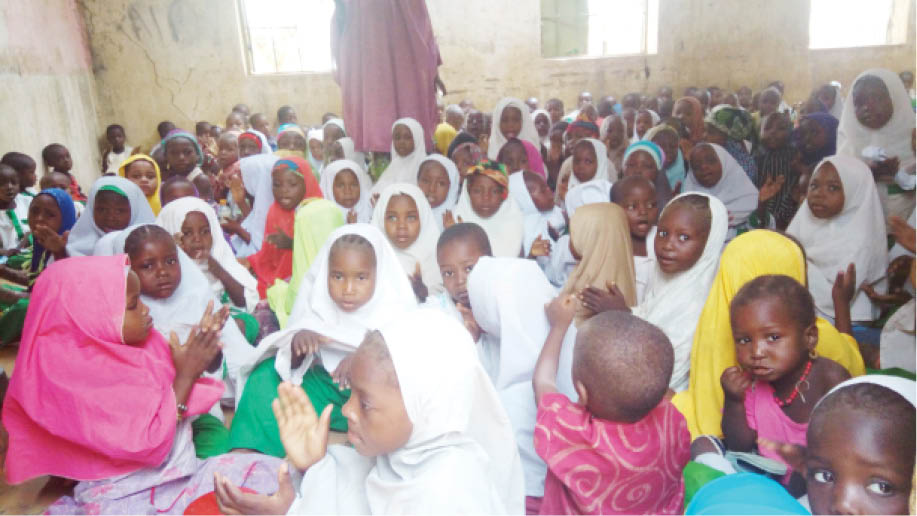Cash Transfer as succour to educationally deprived children
Amina Abdullahi, a primary three pupil of New Rimawa Model Primary School in Goronyo Local Government Area of Sokoto State, is happy to return to school with new uniform, writing materials and sandals. More important to her is that her parents can now afford to send her to school. Amina is a beneficiary of the […]

Amina Abdullahi, a primary three pupil of New Rimawa Model Primary School in Goronyo Local Government Area of Sokoto State
Amina Abdullahi, a primary three pupil of New Rimawa Model Primary School in Goronyo Local Government Area of Sokoto State, is happy to return to school with new uniform, writing materials and sandals. More important to her is that her parents can now afford to send her to school.
Amina is a beneficiary of the Cash Transfer Programme (CTP) project by the United Nations’ Children Education Fund (UNICEF) and the Sokoto State government in which N5,000 is given to each beneficiary’s mother as a caregiver. From the money, she buys her school uniform, writing materials, sandals and the rest is invested into a small business also by the mother.
She is among thousands of girls who are out of school but whose dream of going to school has been put on track with the introduction of the CTP, a programme to counter illiteracy in the wake of Nigeria becoming the country with the highest number of out of school children (11 million according to UNICEF).
The report indicates that there are still many more girls out of school, especially in the northern part of the country.
Initially, the CTP was introduced to reduce the number of out of school children by supporting mothers with the sum of N5,000 each term, to encourage them to send their girl children to school. This was implemented in Sokoto, Kebbi, Katsina, Niger and Zamfara states.
Kebbi, Zamfara and Sokoto states are targeting about 500,000 out of school children each to be enrolled into school.
Thus, CTP’s objective of increasing girls’ enrolment and attendance in schools has been achieved significantly.
In the second phase, the grant was increased to N8,000 per child within the age of six to 11 to help them complete their school.
Some of the beneficiaries in the second phase of the programme said the money has helped them to send their wards to school and also assisted at the home front.
Hadiza Dantani is among women from Kwakware, Suru LGA of Kebbi State, who have made a living and protected their children’s future with the Cash Transfer Programme of the United Nation’s Children Fund (UNICEF).
She gets N8,000 for each of her four children per term under the programme to take care of their needs as they attend school.
From the money, she bought books, uniforms and other needs for their education while investing what is left of the money in groundnut cake and oil business. She also engages in rearing animals.
However, in spite of the programme, many girls who are not captured in CTP are still in the streets.
Experts at the UNICEF media dialogue in Kano traced causes of the rising case of out of school children to poverty, insecurity, lack of access to schools, cultural practices and general inequality in the education sector.
Speaking recently in Sokoto, at the UNICEF media dialogue on Cash Transfer Programme (CTP) and Educate-A-Child (EAC), the fund’s Education Specialist, Azuka Menkiti, said the issue has become a huge concern because on the global scale, “one in 5 out-of-school children are from Nigeria.” He said the country’s role in reducing this is crucial to the attainment of the Sustainable Development Goals (SDGs).
“Our priority at UNICEF is more in northern Nigeria because majority of the out-of-school children are from there,” the fund’s expert noted.
